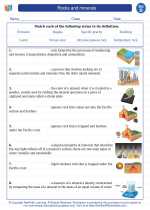Rocks and minerals -> temperature
Temperature
Temperature is a measure of the average kinetic energy of the particles in a substance. It provides information about how hot or cold an object is.
Scales of Temperature
There are three main scales used to measure temperature:
- Celsius (°C): The Celsius scale is based on the freezing and boiling points of water, where 0°C is the freezing point and 100°C is the boiling point at standard atmospheric pressure.
- Fahrenheit (°F): The Fahrenheit scale is also based on the freezing and boiling points of water, but with different reference points. 32°F is the freezing point and 212°F is the boiling point at standard atmospheric pressure.
- Kelvin (K): The Kelvin scale is based on absolute zero, the theoretical lowest possible temperature where particles have minimal kinetic energy. Absolute zero is 0K, and temperatures in Kelvin can never be negative.
Effects of Temperature
Temperature affects various physical properties of substances, including:
- Expansion and Contraction: Most substances expand when heated and contract when cooled.
- Changes of State: Temperature influences the state of matter, causing substances to melt, freeze, evaporate, or condense.
- Chemical Reactions: Temperature can affect the rate and outcome of chemical reactions.
Measuring Temperature
Temperature can be measured using various instruments, including thermometers, thermistors, and thermocouples. These instruments use different principles to measure temperature, such as expansion of liquids, changes in electrical resistance, or voltage differences.
Study Guide
Here are some key points to remember about temperature:
- What is temperature and what does it measure?
- What are the three main temperature scales and their reference points?
- How does temperature affect the physical properties of substances?
- What are the different methods and instruments used to measure temperature?
Understanding temperature is essential for a wide range of scientific fields, from physics and chemistry to meteorology and engineering. Make sure to review the concepts and practice using temperature scales and measurements.
[Temperature] Related Worksheets and Study Guides:
.◂Science Worksheets and Study Guides Fourth Grade. Rocks and minerals
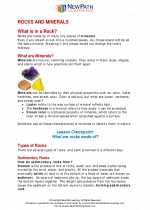
 Activity Lesson
Activity Lesson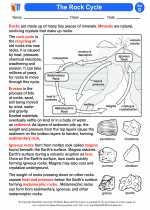
 Worksheet/Answer key
Worksheet/Answer key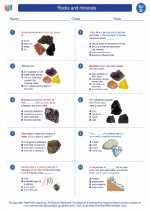
 Worksheet/Answer key
Worksheet/Answer key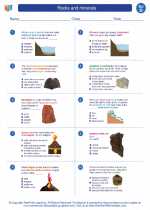
 Worksheet/Answer key
Worksheet/Answer key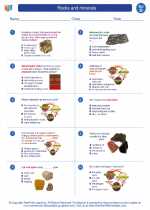
 Worksheet/Answer key
Worksheet/Answer key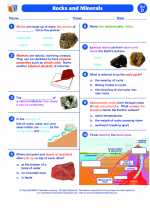
 Vocabulary/Answer key
Vocabulary/Answer key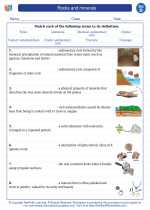
 Vocabulary/Answer key
Vocabulary/Answer key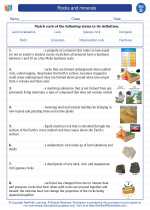
 Vocabulary/Answer key
Vocabulary/Answer key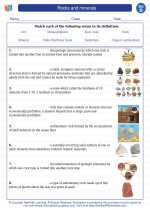
 Vocabulary/Answer key
Vocabulary/Answer key